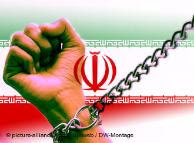آتشباری تانکهای اسرائیلی به سوی باریکه غزه تلفاتی را برجای گذاشته است
یک دختر فلسطینی و یک عضو جنبش حماس در اثر آتشباری تانک های اسرائیلی به سوی مناطقی در داخل باریکه غزه کشته شده اند.
روز چهارشنبه، 11 ژوئن (22 خرداد)، تانک های ارتش اسرائیل نقاطی در اردوگاه آوارگان فلسطینی در خان یونس، در نزدیکی مرز باریکه غزه و اسرائیل را زیر آتش گرفتند و به گفته منابع فلسطینی، یک دختر شش ساله فلسطینی در انفجار گلوله تانک جان خود را از دست داد.
به گفته مقامات محلی، هنگامی که این دختربچه فلسطینی در حیاط خانه مسکونی خود مشغول بازی بود، گلوله تانک در نزدیکی او منفجر شد.
دو تن دیگر از اعضای خانواده این دختر فلسطینی نیز که در محل حضور داشتند زخمی شدند.
منابع ارتش اسرائیل انجام عملیات زمینی در باریکه غزه را تایید کرده اما گفته اند که هدف تانک های اسرائیلی نقاطی بوده که تندروهای فلسطینی از آنها برای موشک پرانی به داخل اسرائیل استفاده می کردند.
به گفته آنان، فرماندهان اسرائیلی از حضور افراد غیرنظامی در این محل اطلاعی نداشتند.
جنبش حماس نیز گفته است که یکی از افراد مسلح این گروه در جریان عملیات روز چهارشنبه کشته شده است.
اسرائیل هدف از حمله خود را متوقف کردن موشک پرانی فلسطینیان عنوان کرده است
به گفته حماس، روز سه شنبه نیز سه عضو این گروه در حمله نظامی اسرائیل جان خود را از دست دادند.
عملیات ارتش اسرائیل یک روز پس از آن گزارش می شود که نخست وزیر و اعضای ارشد کابینه این کشور در جلسه ای موضوع برخورد با تندروهای فلسطینی در غزه را بررسی کردند.
به گفته مقامات اسرائیلی، در این جلسه واکنش نسبت به ادامه موشک پرانی تندروهای فلسطینی از داخل باریکه غزه مورد بررسی قرار گرفت اما در مورد تصمیم احتمالی این جلسه گزارشی انتشار نیافته است.
از اول سال جاری تا کنون، چهار شهروند اسرائیلی در اثر پرتاب موشک و آتش خمپاره از باریکه غزه به سوی هدف هایی در داخل اسرائیل جان خود را از دست داده اند.
حملات موشکی فلسطینیان، که بیشتر آنها تلفات و خساراتی را نیز در پی نمی آورد، معمولا واکنش نظامی اسرائیل را در پی داشته است.
از پائیز سال گذشته تا کنون، حدود پانصد نفر، که نیمی از آنان فلسطینیان مسلح بوده اند، در عملیات نظامی اسرائیل جان خود را از دست داده اند.
همچنین، از ماه ژوئن سال گذشته که جنبش حماس بر باریکه غزه مسلط شده، اسرائیل این بخش از سرزمین های فلسطینی را در محاصره اقتصادی قرار داده است.







